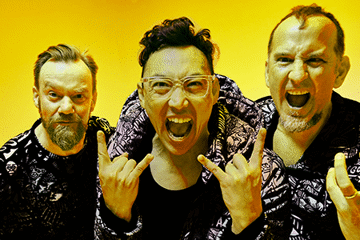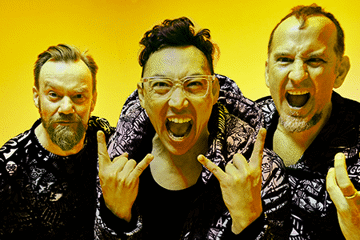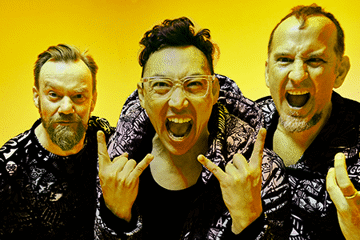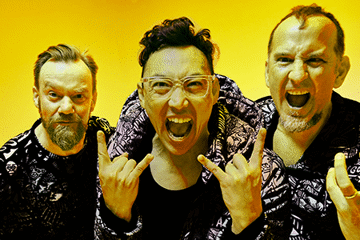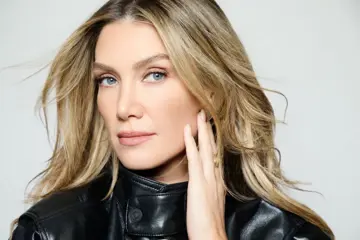 Regurgitator
RegurgitatorQuan Yeomans is a complex abstraction. He likes to think deeply about how we make sense of the world, and he doesn't enjoy small talk. He has a natural introverted character of a writer or a librarian, but instead became a musician/rockstar. He doesn't particularly like crowds but he lives in Hong Kong, the most densely populated place in the world. “The universe is quite abstract,” says Yeomans. “And all you're attempting to do constantly with your brain is to rearrange the abstractness into something you can digest on a daily basis. To make sense of the world, that's generally what people do.” The weird thing is when the complex abstractness of life gets filtered through Yeomans' mind, it generally gets extruded as irreverent, three-minute pop songs.
Regurgitator's new album Dirty Pop Fantasy has a track on it called Sine Wave. It's typical Regurgitator punk pop, with breezy lyrics: “We go up and then down/Just keep on running around/I don't know what it's about/But we go up and then down/Don't try to figure it out.” It's a deceptively superficial song with some deep philosophical thought behind it. “Sine Wave is kind of a bit more of a philosophical tune. That idea of life being like a sine wave that goes up and down: for every high you have there's a similar low, for every desire you have, there's a price – it's just so chaotic, that's the weird thing about it all.” For someone who's had an amped-up existence – 20 years of life as a musician punctuated by thrilling, ego-fuelling performances – equilibrium like that is challenging to maintain, and Yeomans has for a long time been drawn to Buddhist principles. “I think the idea of so-called enlightenment is to really squash that line down. If you look at a sine wave, its amplitude is kind of the bustle in your life and how dramatic your life can be. I think the flatter the line is, the more at peace you are with the world and the universe. So that's something that I aspire to. And of course death is the ultimate flatline.”
His interest in Buddhist principles developed after discovering his father's copy of the book Being Peace by Vietnamese Buddhist monk Tchich Nhat Hanh: “It just started reading like a manual to my own brain, and I realised he must have implanted some of these kinds of concepts into me at a young age.” One of the basic tenets of Buddhism is that life is suffering, and Yeomans' theory about why life can feel difficult is because living is “not actually a natural state for anyone to be in”. “There is a lot of energy that is required to hover elegantly over death for as long as we actually do. Seventy or eighty years is quite an achievement for such an unnatural state. Our natural state is to be dispersed as molecules and atoms into the universe and so it requires a big energy input to maintain this body that we have, this conglomeration of atoms and molecules in this particular form.”


